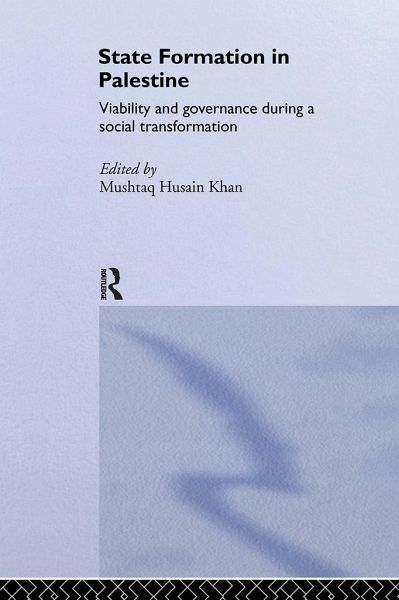
State Formation in Palestine
Viability and Governance during a Social Transformation
Herausgeber: Amundsen, Inge; Khan, Mushtaq Husain; Giacaman, George
Versandkostenfrei!
Versandfertig in 1-2 Wochen
178,99 €
inkl. MwSt.
Weitere Ausgaben:

PAYBACK Punkte
89 °P sammeln!
This book examines key questions and challenges the widely prevalent view that the Palestinian Authority collapsed because of its internal governance failures, its lack of commitment to democracy, and corruption. It argues that the analytical framework of 'good governance' is not appropriate for assessing state performance in developing countries, and that it is especially inappropriate in conflict and post-conflict situations. Instead, an alternative framework is proposed for assessing state performance in a context of economic and social transformation. This is then applied in detail to diff...
This book examines key questions and challenges the widely prevalent view that the Palestinian Authority collapsed because of its internal governance failures, its lack of commitment to democracy, and corruption. It argues that the analytical framework of 'good governance' is not appropriate for assessing state performance in developing countries, and that it is especially inappropriate in conflict and post-conflict situations. Instead, an alternative framework is proposed for assessing state performance in a context of economic and social transformation. This is then applied in detail to different aspects of state formation in Palestine, showing that the institutional architecture set up by the Oslo agreements was responsible for many of the serious failures.













